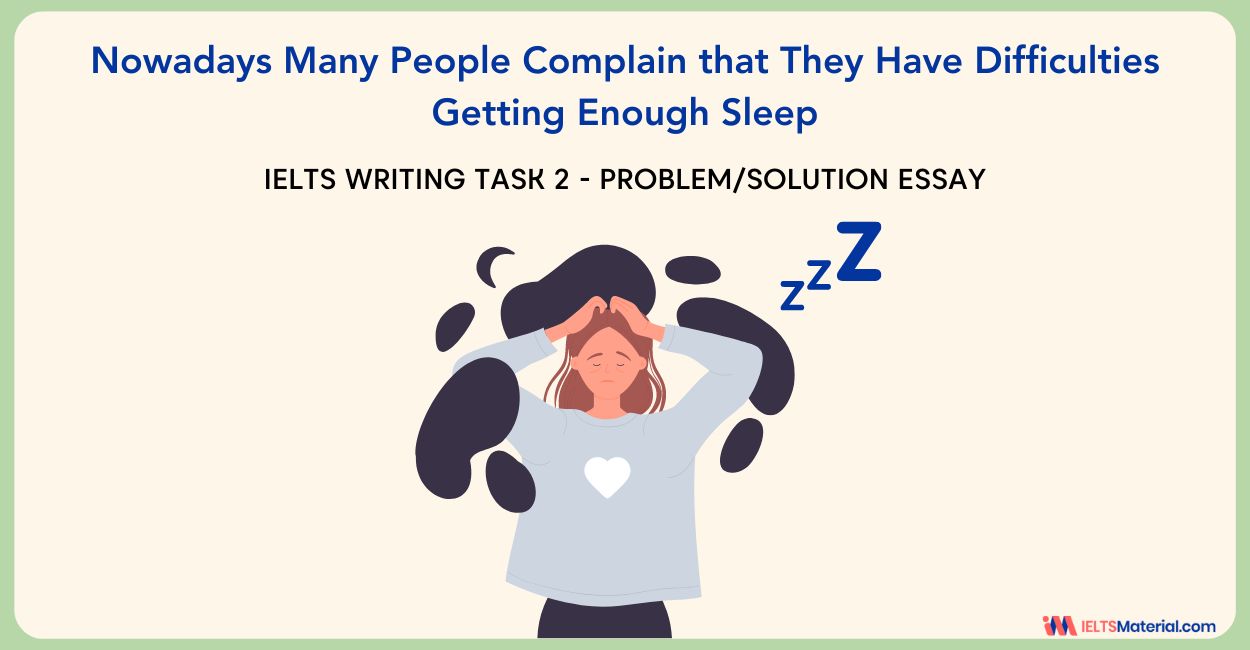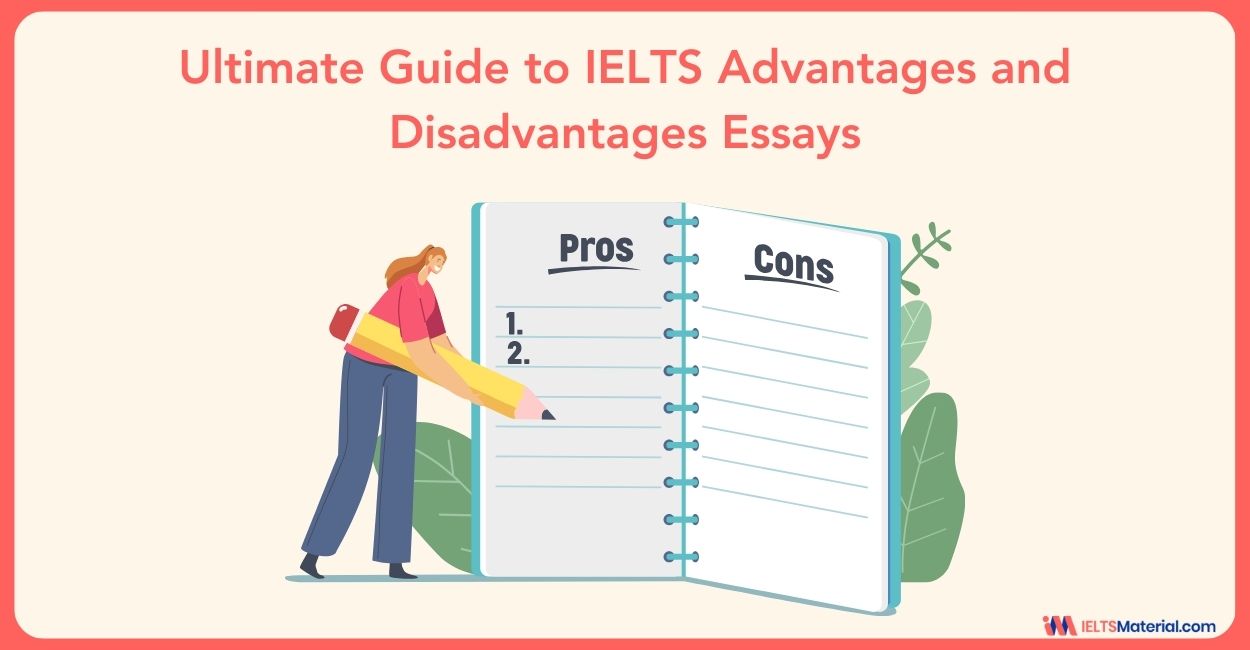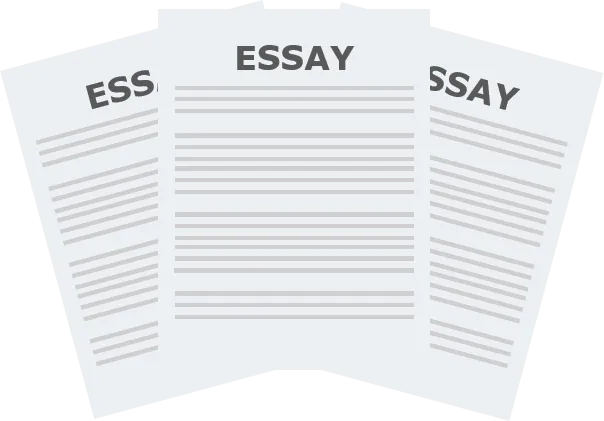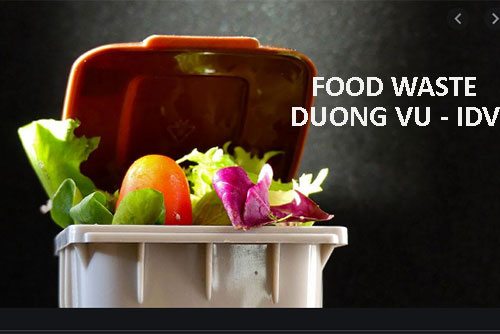
- Writing Correction
- Online Prep Platform
- Online Course
- Speaking Assessment
- Ace The IELTS
- Target Band 7
- Practice Tests Downloads
- IELTS Success Formula
- Essays Band 9 IELTS Writing Task 2 samples – IELTS Band 9 essays
- Essays Band 8 IELTS Writing – samples of IELTS essays of Band 8
- Essays Band 7 IELTS Writing – samples of IELTS essays of Band 7
- Essays Band 6 IELTS Writing – samples of IELTS essays of Band 6
- Essays Band 5 IELTS Writing – samples of IELTS essays of Band 5
- Reports Band 9 IELTS Writing – samples of IELTS reports of Band 9 (Academic Writing Task 1)
- Reports Band 8 IELTS Writing – samples of IELTS reports of Band 8
- Reports Band 7 IELTS Writing – samples of IELTS reports of Band 7
- Letters Band 9 IELTS Writing Task 1 – samples of IELTS letters of Band 9
- Letters Band 8 IELTS Writing – samples of IELTS letters of Band 8
- Letters Band 7 IELTS Writing – samples of IELTS letters of Band 7
- Speaking Samples
- Tests Samples
- 2023, 2024 IELTS questions
- 2022 IELTS questions
- 2021 IELTS questions
- 2020 IELTS questions
- High Scorer’s Advice IELTS high achievers share their secrets
- IELTS Results Competition
- IELTS-Blog App

IELTS essay, topic: In many countries a lot of food is wasted (reasons and solutions)
- IELTS Essays - Band 8
This essay topic was seen in a recent IELTS test in South Korea
In many countries, a lot of food is wasted. Why do people waste food? How can we reduce the amount of food waste?
Sample Band 8 Essay
Despite the fact that millions of people in the world go hungry every day, a surprisingly large amount of food gets wasted daily in certain parts of the world. In my opinion, the main reason for this is that people in the first-world countries tend to only buy food that is aesthetically pleasing, and fortunately, there are some ways to tackle this issue.

It is shockingly sad to know that large amounts of perfectly edible food in the form of fresh produce get sent to landfills, and the main reason for this is that these foods do not meet the standards of perfection set for fruits and vegetables by consumers and grocery stores. For example, veggies and fruit that are misshapen or have a few spots on them are still good enough to eat, yet they are often left on shelves to rot in favour of something that looks less damaged. In addition, a lot of customers confuse the ‘best by’ and ‘use by’ dates, thinking that foods that have passed their ‘best by’ dates are no longer fit to eat. Another major reason for food wastage is that people often overestimate the amount of produce they require on a weekly or monthly basis, and most of it ends up getting thrown out instead of being used.
There are many ways to reduce the amount of food being wasted, and I think one of the best ideas is to increase people’s awareness of just how much good food is disposed of, only because of our superficial biases as to how food should look. Raising the awareness of the staggering number of people that go hungry in third-world countries would make it harder to throw away an apple just because it is a little bruised. Also, teaching people how to better plan their monthly food requirements would help them not to overspend on food that they do not need; it would be great for the environment and their budget. The role of the government in this endeavour is indispensable as such task would be too great for any smaller organisation.
To conclude, the wasting food is a serious issue that merits increased awareness from both people and the leaders of the world. It is unacceptable to discard any food when there are so many people who are starving, and hopefully our joint effort can help improve the current situation.
Click here to see more IELTS essays of Band 8
Related posts:
- IELTS essay, topic: Many people do not exercise enough and eat an unhealthy diet (reasons and solutions) This essay topic was seen in a recent IELTS tests...
- IELTS essay, topic: More and more people participate in extreme sports (reasons and solutions) This essay topic was seen in recent IELTS tests in...
- IELTS essay, topic: Despite the benefits of walking, very few people walk nowadays (reasons and solutions) This essay topic was seen in a recent IELTS test...
- IELTS essay, topic: Newspapers have a significant influence on people’s ideas and opinions (reasons and solutions) This essay topic was seen in a recent IELTS test...
- IELTS essay, topic: Many people today are drinking sugar-based drinks (reasons and solutions) This essay topic was seen in a recent IELTS tests...
Leave a Reply
Your email address will not be published. Required fields are marked *
Save my name, email, and website in this browser for the next time I comment.
- Practice Test
- Useful Tips – Tricks
- Full Writing Review
- General Writing Task
- Writing Task 1
- Writing Task 2
- Writing Exercises
- Writing Sample – Topics
- Writing Vocabulary
- Speaking Vocabulary
- Intro Question
- Speaking Part 1
- Speaking Part 2
- Speaking Part 2 – Audio
- Speaking Part 3
- IELTS Books
- Recent Exams
- IELTS Vocabulary
- Essay from Examiners
- IELTS Ideas
IELTS App - For Mobile
Ready for the IELTS exam with our IELTS app. Over 2 million downloads

Popular Last 24h
Describe a person whom you met for the first time and made you happy, describe a film that made you laugh, describe something difficult you would like to succeed in doing, in many countries,today there are many highly qualified graduates without employment., top 30 vocabulary : topic technology, list of top 100 synonyms in the ielts test, makkar ielts speaking jan to apr 2024 final version [pdf].
- IELTS Test/Skills FAQs
- IELTS Scoring in Detail
- Forecast Speaking – 2023
- List IELTS Speaking Part 3
- List IELTS Speaking Part 1
- IELTS Writing 2023 – Actual Test
Our Telegram
Join our community for IELTS preparation and share and download materials.
The information on this site is for informational purposes only. IELTS is a registered trademark of the University of Cambridge ESOL, the British Council, and IDP Education Australia. This site and its owners are not affiliated, approved or endorsed by University of Cambridge ESOL, the British Council, or IDP Education Australia.
Latest Articles
Ielts speaking part 3: topic relax, describe a place | where you go to relax, ielts speaking part 1: advertisements (audio), describe a place where you like to go shopping , describe an event you attended, most popular, topic: experience is the best teacher.
ieltspracticeonline All Rights Reserved

Book Free Trial
IELTS essay, topic: Nowadays people waste a lot of food, why is this happening and how to reduce waste?
Nowadays people waste a lot of food that was bought from shops and restaurants. Why do you think people waste food? What can be done to reduce the amount of food they throw away?
At the time when famines heavily strike impoverished third world countries, many people living in wealthy countries waste tremendous amounts of food daily. In my opinion, understanding the probable reasons of this phenomenon is important and may lead us to some applicable solutions that will result in reducing food waste.
The low cost of food seems to be one of the obvious reasons, exacerbating the problem. Due to the revolutionary technological achievements, people have increased both the quality and the quantity of their crops. In turn, according to the laws of supply and demand, the prices of the crops have immensely dropped. A recent study of the FAO stated that the global crops prices have dropped 50 per cent over the last decade. This enabled people to buy excessive amounts of food without a real need.
Furthermore, the absence of strict regulations to discourage or punish this attitude can also be considered a major cause. Not everyone is aware that wasting food may create problems. Consequently, they are likely to resist any calls for controlling the consumption of dietary supplies unless they are forced by the power of law. Several countries in the world saw a drop in their national food waste after implementing a ban on the excessive purchasing of food.
Fortunately, there are some possible approaches that can be adopted by both people and governments. Firstly, raising the awareness of this issue is immensely important. Using social media platforms can draw public attention to the potential dangers of food waste and how communities can confront it. Secondly, enforcing laws that prohibit the wasting of food by people and companies will deter such harmful practice.
In conclusion, the decreased price of food as well as lack of regulations allowed the unfortunate trend of throwing away food to continue. I believe that creating awareness and legislation are parts of a straightforward solution to this issue.
The writer explored the reasons for throwing away food and suggested some solutions, effortlessly conveying his/her ideas in this well-written IELTS essay. The information is presented in an orderly, logical and coherent way. A wide range of vocabulary is used in this written response. The sentence structures are varied and the vocabulary is impressive. Overall, this essay could achieve IELTS Band 8.
- Research & Publications
- Career Opportunities
Subscribe to our Newsletter
What students say.

A SUBSIDIARY OF:

Dedicated and Trustworthy Language Training Center offering language proficiency classes for IELTS, CELPIPAND CAEL.

Quick Links
Ielts preparation, celpip preparation.
- 27 Fleming Ave, Brampton, ON L6Y 1J9, Canada
- +1 647-588-7264
Copyright © 2021 | IELTS BRAMPTON | All Rights Reserved
To get IELTS BRAMPTON latest news and updates.
Welcome Guest!
- IELTS Listening
- IELTS Reading
- IELTS Writing
- IELTS Writing Task 1
- IELTS Writing Task 2
- IELTS Speaking
- IELTS Speaking Part 1
- IELTS Speaking Part 2
- IELTS Speaking Part 3
- IELTS Practice Tests
- IELTS Listening Practice Tests
- IELTS Reading Practice Tests
- IELTS Writing Practice Tests
- IELTS Speaking Practice Tests
- All Courses
- IELTS Online Classes
- OET Online Classes
- PTE Online Classes
- CELPIP Online Classes
- Free Live Classes
- Australia PR
- Germany Job Seeker Visa
- Austria Job Seeker Visa
- Sweden Job Seeker Visa
- Study Abroad
- Student Testimonials
- Our Trainers
- IELTS Webinar
- Immigration Webinar
Millions of Tons of Food are Wasted all over the World – IELTS Writing Task 2
Updated On Feb 22, 2024

Share on Whatsapp
Share on Email
Share on Linkedin

Limited-Time Offer : Access a FREE 10-Day IELTS Study Plan!
The Essay Writing section of the IELTS Writing Module can be a difficult task for many IELTS aspirants. Thus, it is vital that you polish your essay writing skills by practising topics like ‘Millions of Tons of Food are Wasted all over the World’ before attempting the IELTS.
Below is a sample IELTS Essay for the IELTS Essay topic:
Every day, millions of tons of food are wasted all over the world. Why do you think this is happening? And how can we solve this problem?
Introduction
- Restate the problem
- Thesis statement (mention the reasons and the solutions to the problem
Food wastage may result from a number of factors.
- Various methods used by food manufacturers encourage people to carelessly consume food.
- As the standard of living is higher, the appreciation of food has been decreased.
- Various measures could be implemented to avoid wasting food.
- The government should enhance the public awareness of the significance of using food economically.
- Strict laws must be introduced to forbid food waste at places such as supermarkets or restaurants.
- Paraphrase the introduction.
- Say what will happen if the situation continues or changes
Get your questions about IELTS essays answered now!
Book a free trial & talk to our IELTS Experts!
Band 8.0 Sample for IELTS Writing Task 2 Question – Millions of Tons of Food are Wasted all over the World:
There has been an ever-increasing trend that people discard an excessive amount of food waste from all corners of the world . This issue can be ascribed to a great number of reasons, and it must be addressed by definite actions.
The reasons for the issue vary. The primary reason is due to the higher standard of living, which results in the depreciation of food regarded as a physiological need in Maslow’s Hierarchy . Another clear reason is that young peoplem who make up for almost half of the world’s population, haven’t been cultivated an appreciation of food from the previous generation. This boils down to the exponential rise in food waste in recent years. These two main reasons have contributed to food loss, which takes place in all parts of the world.
A wide range of strong measures must be implemented to combat food waste . This first solution is that the government can develop some action plans to raise consumers’ awareness of food appreciation and becoming a more conscious consumer & mindful eater. This could be done by getting people involved in global food campaigns such as Think.Eat.Save anti-food waste campaign. In regards to food retailers, they can lend a helping hand by distributing posters or flyers to every single customer when they come across any shopping mall, food supermarket, etc., or sticking posters on the restaurants to encourage customers to use food economically and become a leftovers guru . These mentioned measures can definitely help shape a sustainable future.
To conclude, there are obvious reasons why there is a considerable magnitude of food wasted in much of the world . This negative trend could be tackled by a number of remedies, such as enhancing the public awareness of the significance of using food economically with the help of the government and food retailers.
Band 6.5 Sample for IELTS Writing Task 2 Question – Millions of Tons of Food are Wasted all over the World:
People around the world are wasting a large amount of food every day while others do not have enough food for their daily lives. There are some factors that lead to this problem, and I believe effective solutions would should be proposed soon to tackle this issue.
To begin with, there are several reasons that make people waste a lot of food. Firstly, as people are getting richer nowadays, their appreciation for food is becoming increasingly low. This leads to the fact that they often order plenty of dishes, especially expensive ones. As a result, the amount of left-overs is huge. Secondly, people tend to drink too much alcohol such as beer, wine and champagne, which causes them to feel tired and dizzy. Therefore, they would consume only a little food. If they drink non-alcoholic beverage, they might have better control of their behavior as well as have a well-served meal.
Fortunately, some measures could be taken to prevent this problem. The first solution would be to encourage restaurants to charge on customers who have redundant food on their plates. This may positively affects their thought before ordering. For example, in some Japanese restaurants, if you leave any food on the plates, you would have to pay 20% more as a fine. In addition, media should report more about food shortage in some deprived areas like Africa or Asia and the status of food-wasting phenomenon, which allows people to have more information about lives of the poor and the quantity of food wasted every day all around the world. As a result, awareness of saving and appreciating food would gradually be raised among the public.
In conclusion, wasting food, which is a bad habit, is becoming increasingly common, is a bad habit and actions should be taken as soon as possible to solve this issue.
Also check :
- Tips to write introduction in IELTS Writing Task 2
- Tips to write great writing essay
- IELTS Sample essays
- IELTS Writing task 2 Tips
- Tips to Improve IELTS Writing Skills
- How to get band 8 in IELTS Writing Task 2
- IELTS Writing recent actual test
- IELTS Band 9 essays
- Advantage and Disadvantage Essays
- IELTS Writing Answer sheet
- Band 8+ IELTS Writing Problem Solution Essay Structure
Practice IELTS Writing Task 2 based on Essay types

Start Preparing for IELTS: Get Your 10-Day Study Plan Today!
Kasturika Samanta
Kasturika is a professional Content Writer with over three years of experience as an English language teacher. Her understanding of English language requirements, as set by foreign universities, is enriched by her interactions with students and educators. Her work is a fusion of extensive knowledge of SEO practices and up-to-date guidelines. This enables her to produce content that not only informs but also engages IELTS aspirants. Her passion for exploring new horizons has driven her to achieve new heights in her learning journey.
Explore other Writing Actual Tests

Nehasri Ravishenbagam

Post your Comments
Posted on Oct 17, 2021
Hi Ma’am. Please provide a band for this essay:
Visiting restaurants and ordering food online have become quite prevalent these days. This trend, however, has resulted in significant wastage of food. This essay will explore the possible reasons and provide solutions to combat this problem.
There is a plethora of reasons for significant amounts of food wastage. The primary cause is the availability of food items from food joints, at lowered prices. In other words, customers order more food that they can consume, simply because it is available at cheaper rates. Consequently, they end up disposing of excessive, leftover food. Secondly, with the availability of online food delivery websites and applications, like Swiggy and Zomato, people order food items without being mindful of their needs. As a result, more food is available, simply to be thrown away the next day.
To counter the issue of restaurant food wastage, a multitude of steps can be taken. Various online initiatives are available; whereby, people can ask volunteers from organizations that take away leftover food, at no cost to the consumer, and provide it to the needy people. This strategy has proven to be immensely effective in reducing food wastage in the past few years. Furthermore, customers should be mindful and attentive while ordering food. In other words, ordering food should be based on the appetite of a person, and not merely on food prices. For instance, if food delivery applications or physical restaurants, have awareness sections that ask a person to order mindfully, it will serve as a reminder to the person, to only order food that they are likely to fully consume. Optimal application of these measures can subsequently alleviate food wastage problem.
To conclude, low food prices and ordering food online or otherwise, in a non-attentive manner are the two main causes of food wastage. Few steps can be taken to curb this issue, including effective usage of websites to allow people to take away leftover food items, and websites can be customized to prompt a person to only order as much as they really need.
Janice Thompson
Posted on Oct 18, 2021
Overall band: 6.0
Lexical Resource: Try to use “C2” vocabulary.
Recent Articles

Raajdeep Saha

Our Offices
Gurgaon city scape, gurgaon bptp.
Step 1 of 3
Great going .
Get a free session from trainer
Have you taken test before?
Please select any option
Get free eBook to excel in test
Please enter Email ID
Get support from an Band 9 trainer
Please enter phone number
Already Registered?
Select a date
Please select a date
Select a time (IST Time Zone)
Please select a time
Mark Your Calendar: Free Session with Expert on
Which exam are you preparing?
Great Going!

IELTS Essay: Food Shortage and Solution
05/25/2022 11:27 AM
Agree or Disagree
In this essay type, you have to agree or disagree. Often times students make the mistake to write about both, where you shouldn't. Pick ONE side ( agree or disagree ) and stick to it in the whole essay .
You are supposed to have a strong opinion defending or being against the idea. Provide logical ideas and creative examples on why you have that strong opinion.
What is a GMF?
Genetically modified food (GMF) is food that has changes in its DNA using the method of genetic engineering . Thanks to this method, new traits can be introduced to a type of plant or animal to control its growth, shape, size, smell, taste, appearance, etc.
For example:
Naturally grown apples look different, have a weak yellow coloring, the taste may be sweet or sour, their size is definitely smaller than commercial apples, the shape is oftentimes distorted , etc.
Commercial apples (GM apples) are perfectly round, perfectly red on every side, taste only sweet, and can be grown in very large sizes.
All of this change was done thanks to generic modifications of the apple. The main reason for the change is mass production of the same product and eventually higher profits for the corporation or farmer. People would most often buy only "perfect apples" instead of the other "leftover" food.
This can be applied to every other fruit or vegetable, as all of them have been modified in one way or another.
Food Shortage: Why?
There are many reasons why we might have a food shortage in certain areas around the world, and those can include geography , economic conditions , corruption of governments , wars , worldwide distribution , and many more. Before we answer the question above, we should learn about the whole problem of food shortage, what causes it and what can be done about it.
Let's take a look at a few reasons and then discuss solutions.
Reason 1: Distribution
One of the biggest reasons for food shortage is probably distribution or moving resources from one place to another. As the world transportation system is controlled tightly by a few global transportation monopolies , they oftentimes would straight up refuse to ship food around the world, simply because they won't be able to make a profit on that transportation. This creates a bottleneck system where food remains stuck at certain places in the world and has to be consumed only there.
Reason 2: Overconsumption and Waste
This is a huge problem in developed countries . In countries like the USA , China , or some developed European nations , people overconsume food to a huge extent . There is a growing problem with obesity , which comes directly from huge portions , a vast amount of fast food, snacks , and sweet delights . Food waste is a ridiculous problem as well , where restaurants and huge fast food chains throw out tons and tons of food daily , as they are unable to sell or do anything with it.
Reason 3: Geography and Climate Change
It is a non-debatable fact that climate change is here and it is affecting agriculture all around the world. The countries hit the hardest will be the ones along the equator , but the effect will be felt all around the world. This will affect heavily crops yield and reduce the number of food resources available in the world. With the weather changing constantly , we might not be able to engineer crops quickly enough for them to grow well in those changing conditions .
Reason 4: Capitalism and Profit
This problem is somewhat related to the first one about distribution. The main issue that creates world hunger is greed , monopolies , and unchecked capitalism . As wealthy countries and individuals control the means of production for food, they keep prices high and this keeps poor nations or societies hungry. It is so bad that in many cases large producers of meat or vegetables are willing to destroy their production, only to keep prices high or keep selling entirely to wealthy nations .
Solution 1: Distribution
The problems with distribution are linked directly to capitalism and globalization . The world should have never allowed for huge monopolies to control the flow of goods in and out of countries. What can be done is perhaps treating these huge transportation companies with either incentive (rewards) for shipping food or punishing them heavily for refusal. They are supposed to be a public good , and there should be strong government action against all sorts of monopolies , no matter where they come from.
Solution 2: Overconsumption and Waste
A solution for this is again government control . It sounds like a loss of freedom or loss of independence , but there should be strict and dramatic control of diet and food in the developed nations . Restaurants and food chains should not be allowed to make huge portions that could in any normal time feed a whole family, and sell that to a single person. All of that is done because of greed and carelessness for human health . Moreover , food waste should be fought vigorously , and all types of wasteful companies should be held accountable . Those resources of food can go and should go to other people, instead of being wasted and destroyed .
Solution 3: Geography and Climate Change
This is going to be one of the toughest challenges . Fertile soil naturally occurs in only some areas around the world, while other areas have scarce or non-existent . The solution is obviously international cooperation . Countries that are unlucky to have low-yielding soil or shifting climate patterns , have to receive generous help from luckier nations. This whole process should be transparent , cheap , and effective , in order to support those nations' development and avoid mass migrations .
Solution 4: Capitalism and Profit
This is a very tough problem to solve, as power is absolutely in the hands of the rich and powerful . There should be a system , or an international institution that is neutral from governments and corruption , and has the power to block , ban , control , or persuade companies and producers in any nation, no matter if they are in a powerful or weak nation, to change their attitude and prices . This type of organization should be profit free , focusing on securing equal nutrition across all nations of the world. It is a long shot , and probably will never happen, but it is one type of solution.
These are a few ideas in general when writing about food shortages and starvation . In our case here, the topic discusses " gene-modified food " and whether it is an adequate solution . If you agree with the statement, then you need to provide the benefits of GM food. Some benefits can be:
Mass Production - gene-modified food allows mass production of one type one style "uniform" crops that can yield more than traditional crops. ( Example: Corn being mass-produced in the USA and used as anything from biofuel, sweetener, staple food, etc.)
Adaptability - changing the gene of foods improves their durability, their ability to grow in unfriendly environments, and their ability to adapt to changing climates. ( example: rice being modified in china and being planted in all sorts of environments including flooded humid areas in the south, dry and hot locations in the north, mountainous regions, and even in salty seawater)., appeal - although that's not in their interest, humans like perfection and are willing to spend more to buy perfectly looking vegetables and fruit, rather than the naturally-grown imperfect variants. ( example: think perfectly looking apples, bananas, watermelons, huge cucumbers, perfectly round and red tomatoes, etc.).
However, if you disagree , you can use the reasons and solutions above. You can say that even though gene-modified foods are on the rise , massive companies still hold monopoly rights to these foods and technology which will prevent the food to reach the people that need it the most. The technology is definitely good, but it won't change geography , capitalism , or human greed , which is the underlined problem in this case. It is not that the world doesn't have food, it is that we don't want to share it at affordable prices with everyone.

Example Essay:
"One of the most important issues facing the world today is a shortage of food and some think genetically modified foods are a possible solution"
To what extent do you agree or disagree?
Vocabulary related to the topic
Sentence starters and linking words, idioms and phrases, introduction.
The idea of a food shortage seems somewhat alien to people from the developed world , especially those living in large megacities . However, predominantly in the last decade , big forces like climate change , international conflicts , economic failure , and income disparities have brought up the topic into the mainstream again. Some believe that genetically modified crops are the solution to this crisis , and although being a net benefit to society , I’d have to disagree, as this innovation does not solve the overarching issues of distribution and human greed . I will provide a few reasons in this essay supporting my decision.
Vocabulary:
the developed world - wealthy, rich countries like the USA, Canada, Australia, Germany, France, the UK, and more.
large megacities - cities with huge populations like Shanghai, New York, Los Angelis, Berlin, London, etc.
a decade - 10 years
a big force - something strong and powerful that affects the world
climate change - the change and rise of temperatures in the world
international conflict - fights, arguments, and misunderstandings between countries
economic failure - having problems with the economy, having economic crises
income disparity - income gap, large differences between the top earners and the bottom earners
mainstream - popular, in the spotlight , being discussed by many people
crops - food that grows on the ground, vegetables and grains
a crisis - a big problem with a country or the world
*IDIOM* - a net benefit - an absolute benefit, a positive development
innovation - improvement of something, making something better, more efficient, cheaper, and so on.
overarching - above all, the most important, the top
distribution - the spread, transportation, delivery, and sharing of resources
greed - the constant need for financial gain, that can never be satisfied
Linking Phrases / Sentence Beginners:
The idea of __________ seems __________ ,especially __________.
However, predominantly _________, have brought up the topic into _________.
Some believe that __________, and although __________, I'd have to disagree, as __________.
I will provide a few reasons in this essay supporting my decision.
Paragraph 1
Initially, it may seem that genetically modified crops can be an easy solution to the crisis . After all , they can grow quickly, they can be mass-produced easily, they can yield more than traditional crops and that means we can feed everyone around the world with ease . This whole picture is wrong, as simply producing a lot does not mean that that food can be shared evenly across the world. It is a well-known fact that most rich and wealthy nations like the US , Canada , France , or Germany hold monopoly power on many new technologies. Not only that, but they protect that monopoly power of their mega-corporations and that means that this technology cannot and will not be shared with the rest of the world. What good is creating these amazing technologies, if they are not shared with any nation that actually needs them? In this case , wealthy nations overproduce and hoard resources , including food, and develop huge problems with rising obesity , while other nations suffer from malnutrition . It is an unjust system that needs to be changed, in order to help feed the world and not just the rich part of it.
solution - a way to fix something, a way to solve something
*IDIOM* - with ease - very easy, effortlessly
mass-produced - something that can be made quickly and on a large scale, making thousands or hundreds of thousands of things quickly
yield - the amount of produced crops (vegetables, fruit, grain)
traditional crops - non-gene-modified crops, organic crops
*IDIOM* -to hold monopoly power - to have full control of a system and to try to keep that control for yourself
mega-corporations - a multinational corporation (company), a company that has unlimited resources and power
to overproduce - to make more than needed
to hoard resources - to collect and keep resources only for yourself, without sharing, to pile up
obesity - becoming unhealthily fat
malnutrition - to consume very less nutrients because of a lack of good quality food
unjust system - a system that is unfair or lacks fairness for everyone
Initially,it may seem that _________.
After all _________.
This whole picture is wrong as , _________.
It is a well-known fact that _________.
Not only that but _________ and that means that _________.
What good is _________, if they are not _________.
In this case _________ , while _________.
It is __________, in order to _________ and not just _________.
Paragraph 2
Secondly, the problem with genetically-modified food is that of distribution . There is a massive waste of food happening in the developed world which is clearly presented by the fast-food industry . Daily, millions of tons of actually edible , quality food are being trashed , fed to animals , burned , destroyed , or used for biofuel , instead of feeding people. This is a problem with monopolies and distribution . Often times shipping monopolies refuse to ship food from one country to another, as there is low or no profit on those shipments. Food monopolies produce a lot, however , they would prefer to destroy their own production , rather than drop the price , as profits and making money is always above feeding those in need . In a way , the food distribution and supply system are absolutely broken and unjust , and that solidifies the case that genetically-modified food won’t save the world. In fact, it might create a larger problem with waste , rather than feeding everyone in need.
distribution - the sharing, shipping, and transportation of resources
waste of food - inefficient use of food
the fast-food industry - the big companies in the fast-food industry like KFC, Mcdonald's, Burger King, etc.
edible - able to eat, good for eating
to be trashed - to be destroyed or thrown in the trash
biofuel - fuel made of plants like corn or other grains
shipping monopolies - companies that control the shipping industry
to ship - to send something by sea
to profit - to gain money out of something
to drop the price - to reduce the price, to lower the price
profits - financial gain, money
a supply - the making and bringing of goods to the goods market
Secondly, the problem with _________.
There is a massive _________.
Daily, millions of tons of _________, instead of _________.
This is a problem with __________.
Often times __________, as __________,
__________, however they would prefer to _________, rather than __________, as _________ is always above _________.
In a way __________, and that solidifies the case that __________.
In fact, it might __________, rather than __________.
In a word , the world suffers from unjust , corrupt systems of food supply, and that is one of the main reasons for a food shortage. As climate change and global conflicts build up steam , we are faced with this unparallel challenge – should we feed the needy , or simply close down and focus on our own. The world needs a better system of international cooperation and understanding , that fights monopolies rigorously , shares technology with kindness , and utilizes genetically-modified foods, in order to lift up nations all around the globe . Hopefully, we can achieve that in the foreseeable future .
*This essay was written in 30 minutes . It is quite long but gives a deep and thoughtful discussion on the problems of food supply and production.
unjust - unfair, not normally right
corrupt system -dishonest behavior by the people operating the system, seeking large amounts of money in order to function or making favors
unparallel challenge - unmatched, inconceivable, unprecedented challenge
*IDIOM* - to build up steam - to increase speed (from steam trains), to accelerate, to grow quickly
the needy - the poor, those in need
international cooperation - countries working together hand in hand , helping and supporting each other
a monopoly - a company or few companies that have full control over one industry and control the price, production, and everything else
*IDIOM* - to lift (people) up - to improve the lives of people
rigorous - hard and strong, without any rest
to utilize - to use effectively and efficiently
nations - countries
the globe - the world, Earth
foreseeable - predictable, one that can be seen, near or close to our time (future) (10-20 years)
In a word _________, and that is one of the main reasons for _________.
As _________, we are faced with __________.
Hopefully, we can achieve _________.
Have fun writing and stay hungry for knowledge !
I have been writing consistently at least 2 essays a week for the past 3 and a half years. Much as I enjoy writing, I love showing my work to the world. And I don’t just write for the sake of Writing. I, instead, write strictly TIMED essays you will most likely expect in the IELTS. Bare in mind that the TIMER is your true friend, and this makes time abundance your foe. Always time yourself 1 hour for a FULL test or 20 minutes for Task 1 and 40 minutes for Task 2. Remember to tackle the question(s) without any pre-reading since this element of surprise of having a random question thrown right into your face is what IELTS Writing is all about. These under-exam-condition essays, no matter how shitty they turn out to be, are indicative of your TRUE level of English, of what you could reasonably do in a real test, and also a foundation on which you can build up and keep refining your skills. And finally, you can take advice from me as someone who has, countless times, pulled off an 8.0 in Writing. Have fun reading and stay hungry for knowledge. Ngoc.

In many countries, people throw away a lot of food from restaurants and shops.
Why do you think people waste food in this way?
What can be done to reduce the amount of food thrown away?
The amount of food waste in many parts of the world has been increasing. This trend is mainly due to a lack of awareness regarding food scarcity, which can be tackled through government intervention.
The increasing amount of food waste is a result of people’s poor attitude towards food conservation. In many countries, city dwellers throw away leftovers, including those from restaurants and shops, without any consideration for those who are less fortunate and may suffer from food scarcity. This issue is compounded by the fact that individuals who have access to abundant food supplies tend to be ignorant of the situation faced by people in less developed countries.
To address this problem, governments can take several measures. First, they can raise public awareness about the negative impact of food waste on society and encourage responsible food consumption habits. For instance, in Japan, children are taught how to reduce food waste and reuse leftovers as part of their curriculum, which has become an integral part of Japanese culture. Second, governments can impose regulations on food establishments to reduce food wastage. They can do this by imposing penalties for violators, which will encourage compliance and significantly reduce the amount of food wasted.
In conclusion, the issue of food waste can be attributed to a lack of awareness about food scarcity and, thus can be addressed through government intervention regarding the promotion of responsible consumption habits and the implementation of regulations. Moreover, individuals should also take responsibility for their actions and make an effort to reduce food waste.
Essay Breakdown
Introduction
[1] The amount of food waste in many parts of the world has been increasing. [2] This trend is mainly due to a lack of awareness regarding food scarcity, which can be tackled through government intervention.
1. Paraphrase the given topic.
2. Answer both parts of the questions: the reasons for increasing food wastage and possible solutions for this phenomenon.
Paragraph 1
[1] The increasing amount of food waste is a result of people’s poor attitude towards food conservation. [2] In many countries, city dwellers throw away leftovers, including those from restaurants and shops, without any consideration for those who are less fortunate and may suffer from food scarcity. [3] This issue is compounded by the fact that individuals who have access to abundant food supplies tend to be ignorant of the situation faced by people in less developed countries.
1. A topic sentence showing the main idea: people’s poor attitude
2. Explain the main point by giving an example
3. Continue to develop the main point
Paragraph 2
[1] To address this problem, governments can take several measures. [2] First, they can raise public awareness about the negative impact of food waste on society and encourage responsible food consumption habits. [3] For instance, in Japan, children are taught how to reduce food waste and reuse leftovers as part of their curriculum, which has become an integral part of Japanese culture. [4] Second, governments can impose regulations on food establishments to reduce food wastage. [5] They can do this by imposing penalties for violators, which will encourage compliance and significantly reduce the amount of food wasted.
1. A topic sentence expressing the main idea – the solution lies with governments
2. Supporting idea 1 – raising public awareness and encouraging responsible food consumption habits
3. Give an example to support the first main idea
4. Supporting idea 2 – imposing regulations
5. Provide further explanation to support the second main idea
[1] In conclusion, the issue of food waste can be attributed to a lack of awareness about food scarcity and, thus can be addressed through government intervention regarding the promotion of responsible consumption habits and the implementation of regulations. [2] Moreover, individuals should also take responsibility for their actions and make an effort to reduce food waste.
1. Restate my opinion
2. Extend the viewpoint by stating a final thought (Individual responsibilities to reduce food wastage)
The amount of food waste in many parts of the world has been increasing. This trend is mainly due to a lack of awareness regarding food scarcity , which can be tackled through government intervention .
The increasing amount of food waste is a result of people’s poor attitude towards food conservation . In many countries, city dwellers throw away leftovers , including those from restaurants and shops, without any consideration for those who are less fortunate and may suffer from food scarcity. This issue is compounded by the fact that individuals who have access to abundant food supplies tend to be ignorant of the situation faced by people in less developed countries.
To address this problem, governments can take several measures. First, they can raise public awareness about the negative impact of food waste on society and encourage responsible food consumption habits . For instance, in Japan, children are taught how to reduce food waste and reuse leftovers as part of their curriculum, which has become an integral part of Japanese culture. Second, governments can impose regulations on food establishments to reduce food wastage. They can do this by imposing penalties for violators , which will encourage compliance and significantly reduce the amount of food wasted.
Vocabulary Highlight
- food waste : uneaten food that is discarded
- lack of awareness : insufficient knowledge or understanding of a particular issue
- food scarcity : insufficient food supplies or access to food
- government intervention : actions taken by the government to address a particular issue
- poor attitude towards food conservation : negative or careless behavior towards reducing food waste
- city dwellers : people who live in urban areas
- leftovers : uneaten food that remains after a meal
- less fortunate : those who are less privileged or have limited resources
- abundant food supplies : having access to an excessive amount of food
- responsible food consumption habits : adopting practices to reduce food waste and promote sustainable food consumption
- public awareness : the extent to which the public is knowledgeable and informed about a particular issue
- negative impact : harmful effects or consequences
- compliance : following rules or regulations
- violators : those who break rules or regulations
- penalties : punishment for violating rules or regulations
Grammar Gems
RELATIVE CLAUSE
“This trend is mainly due to a lack of awareness regarding food scarcity, which can be tackled through government intervention.”
This sentence includes a relative clause (which can be tackled) that modifies the noun phrase (a lack of awareness regarding food scarcity). The use of a relative clause is a common and useful grammatical structure in English. In this sentence, the use of “which” helps me to summarise both the reasons and the solutions in one sentence.
Further reading can be found here:
https://learnenglishkids.britishcouncil.org/read-and-write/reading-practice/level-3-reading/food-waste
Further listening can be found here:
Leave a Reply Cancel reply
50 Latest Food IELTS Topics
- Unlimited Essay Checks: Practice and perfect your skills.
- Detailed Error Analysis: Spot every mistake.
- In-Built Grammar Checker: Say no to grammatical errors.
- Personalized Suggestions: Know how to boost your score.
- Progress Tracking: View your checked essay history.
- Still thinking? We have a 14-day money-back guarantee. Take a leap of faith!


IELTS Speaking Part 3 -Details Discussion

1. How significant is the issue of food waste in your city, and what measures are being taken to address it?
Sample Answer, C1 English Level, Advanced, Band Score 6.5-7.5
Food waste is a significant issue in my city, with a substantial amount of edible food being discarded daily. To address this problem, various measures have been implemented. Local authorities have introduced awareness campaigns to educate residents about the importance of reducing food waste and promoting sustainable consumption. Additionally, initiatives like community composting and food rescue programs have been established to redirect surplus food to those in need. Furthermore, restaurants and supermarkets are encouraged to implement efficient inventory management systems to minimise waste. These collective efforts are helping to tackle the issue of food waste in our city.
Food waste is a noteworthy concern in my city, and efforts are being made to tackle this issue. To address food waste, several measures have been put in place. Public awareness campaigns have been launched to educate citizens about the impact of food waste and the importance of mindful consumption. Moreover, local organisations have established food banks and partnerships with supermarkets to rescue surplus food and redistribute it to vulnerable communities. These initiatives aim to reduce food waste and ensure that edible food reaches those in need, thereby making a positive impact in our city.
Food waste poses a significant challenge in my city, prompting various measures to combat this issue. Recognising the magnitude of the problem, our city has implemented a comprehensive strategy. This includes educational campaigns conducted through schools, community centres, and online platforms, raising awareness about the consequences of food waste and providing practical tips on reducing it. Collaborative efforts between local authorities, food businesses, and charitable organisations have facilitated the collection and redistribution of surplus food to homeless shelters and food banks. Furthermore, innovations like anaerobic digestion facilities are being explored to convert food waste into energy or fertilisers. These collective actions demonstrate our city’s commitment to addressing food waste and promoting sustainability.
2. In your opinion, what are the main causes of food waste in households, and how can individuals reduce their own contribution to this problem?
In my opinion, the primary causes of food waste in households are improper meal planning, over-purchasing, and disregarding expiration dates. To reduce their contribution to this problem, individuals can adopt several practices. Firstly, they can plan meals in advance, making a shopping list based on their needs. Secondly, being mindful of portion sizes and freezing leftovers for later consumption can prevent food from going to waste. Additionally, understanding expiration dates and distinguishing between “best before” and “use by” labels can help avoid unnecessary discarding. Finally, composting food scraps can contribute to reducing household waste and benefiting the environment.
From my perspective, the main causes of food waste in households are inadequate meal planning, excessive buying, and lack of awareness about food storage. To reduce their impact on this issue, individuals can take specific measures. Firstly, planning meals and making a shopping list can help avoid impulse purchases and ensure that only necessary items are bought. Secondly, being mindful of portion sizes and saving leftovers for future meals can minimise waste. Additionally, proper understanding of food storage techniques, such as refrigeration and freezing, can extend the shelf life of perishable items. Lastly, composting food scraps can contribute to reducing overall waste.
In my view, the primary causes of food waste in households stem from poor meal planning, impulse buying, and misconceptions about food expiration dates. To mitigate their contribution to this problem, individuals can adopt several practices. Firstly, meticulous meal planning and creating a shopping list based on planned meals can prevent unnecessary purchases. Secondly, storing food correctly, using proper storage containers and refrigeration techniques, can prolong its freshness. Thirdly, being mindful of portion sizes and repurposing leftovers into new dishes can significantly reduce waste. Finally, raising awareness about the distinction between expiration dates and adopting composting practices can contribute to a more sustainable approach to food consumption at home.
3. What impact does food waste have on the environment, and what are some sustainable solutions that can be implemented to minimise its effects?
Food waste has a significant impact on the environment. When food is wasted, it ends up in landfills where it decomposes and produces methane, a potent greenhouse gas that contributes to climate change. Moreover, resources such as water, energy, and land are wasted in the production, processing, and transportation of food that ultimately goes uneaten. To minimise the effects of food waste, sustainable solutions can be implemented. These include promoting food waste reduction at all stages of the supply chain, implementing composting and anaerobic digestion systems to divert organic waste from landfills, and encouraging consumer education on proper storage, portion control, and creative ways to use leftovers.
Food waste has a significant environmental impact. When food ends up in landfills, it decomposes and releases methane, a greenhouse gas that contributes to climate change. Additionally, wasted food represents a waste of resources such as water, energy, and land used in its production and transportation. To minimise the effects of food waste, sustainable solutions can be adopted. These include implementing composting systems to divert organic waste from landfills, promoting food donation and redistribution programmes, educating consumers about proper storage and meal planning, and encouraging businesses to implement efficient inventory management practices to reduce waste throughout the supply chain.
Food waste exerts a substantial environmental impact. When food is wasted, it contributes to greenhouse gas emissions as it decomposes in landfills, releasing methane and exacerbating climate change. Furthermore, the resources invested in food production, including water, energy, and land, are squandered. To minimise these effects, various sustainable solutions can be implemented. These encompass reducing food waste at all stages of the supply chain through improved production practices and efficient distribution systems. Encouraging food recycling and composting can divert organic waste from landfills, while promoting food donation and redistribution initiatives can ensure that surplus food reaches those in need. Additionally, educating consumers about responsible consumption, including meal planning, proper storage, and creative use of leftovers, can significantly contribute to reducing food waste and its environmental impact.
4. Discuss the economic implications of food waste in the food industry, including its effects on prices, profits, and sustainability.
Food waste in the food industry has significant economic implications. Firstly, it increases production costs as resources are wasted in producing, processing, and transporting food that goes uneaten. This can lead to higher prices for consumers. Secondly, food waste affects profitability for businesses as they incur losses from discarded inventory. Additionally, it hinders sustainability efforts by putting strain on natural resources and contributing to greenhouse gas emissions. To address these implications, the food industry can adopt measures such as improved inventory management, supply chain optimization, and innovative packaging techniques to minimise waste, reduce costs, and enhance sustainability.
Food waste in the food industry has notable economic implications. It leads to increased production costs as resources are wasted in the form of discarded food. These costs can eventually result in higher prices for consumers. Moreover, food waste affects profitability for businesses, as they incur losses from unsold or expired products. Additionally, it undermines sustainability efforts by depleting natural resources and contributing to environmental issues. To mitigate these implications, the food industry can implement measures like better inventory management, efficient supply chain practices, and partnerships with food rescue organisations to minimise waste, improve profitability, and promote sustainability.
Food waste in the food industry carries significant economic implications. Firstly, it impacts prices, as the costs associated with producing, processing, and transporting wasted food are passed on to consumers. This can lead to increased prices and reduced affordability. Secondly, food waste affects the profitability of businesses, as unsold or expired products result in financial losses. Additionally, it undermines sustainability by wasting valuable resources like water, energy, and land. To address these implications, the food industry can adopt strategies such as implementing efficient inventory management systems, improving supply chain practices, and exploring innovative solutions like surplus food redistribution to minimise waste, reduce costs, and promote economic and environmental sustainability.
5. Can you provide examples of successful initiatives or campaigns in the UK that have effectively reduced food waste? How can these approaches be replicated on a larger scale?
In the UK, several successful initiatives have effectively reduced food waste. For example, the “Love Food Hate Waste” campaign educates consumers about meal planning, portion control, and proper storage techniques. Another notable initiative is the “Food Waste Reduction Roadmap,” which encourages businesses to set targets and measure their food waste. These approaches can be replicated on a larger scale by implementing comprehensive educational campaigns, fostering collaborations between businesses and non-profit organisations, and introducing legislation that incentivises food waste reduction. Scaling up such initiatives requires government support, industry commitment, and widespread public awareness to create a culture of responsible food consumption.
In the UK, there are notable examples of successful initiatives that have effectively reduced food waste. One such initiative is the “Too Good To Go” app, which connects consumers with local food businesses offering surplus food at reduced prices. Another example is the “FareShare” programme, which collects surplus food from supermarkets and redistributes it to charities and community organisations. To replicate these approaches on a larger scale, it is crucial to raise awareness among consumers and businesses, develop partnerships between food retailers and charitable organisations, and invest in infrastructure for food collection and redistribution. Government support and collaboration with industry stakeholders are essential for scaling up these successful initiatives.
In the UK, several initiatives have successfully reduced food waste. For instance, the “Love Food Hate Waste” campaign has been effective in raising consumer awareness about meal planning, storage techniques, and creative use of leftovers. Additionally, the “Courtauld Commitment” brought together businesses, government, and NGOs to set voluntary targets for reducing waste in the food and drink sector. These approaches can be replicated on a larger scale by implementing nationwide educational campaigns, fostering partnerships between retailers, charities, and food banks, and enacting policies that incentivise waste reduction and redistribution. Scaling up successful initiatives requires collaboration, public engagement, and a comprehensive approach involving all stakeholders in the food system.
6. What role do supermarkets and food retailers play in contributing to food waste, and what strategies can be adopted to encourage them to reduce waste throughout the supply chain?
Supermarkets and food retailers play a significant role in contributing to food waste. They often reject imperfect or cosmetically flawed produce, leading to unnecessary waste. Additionally, inefficient inventory management, overstocking, and strict expiration date policies contribute to waste throughout the supply chain. To encourage these entities to reduce waste, strategies such as implementing dynamic pricing to sell surplus items, partnering with food redistribution organisations, and adopting innovative packaging solutions can be effective. Furthermore, educating retailers about the economic and environmental benefits of waste reduction and implementing industry-wide guidelines can drive change and foster a more sustainable approach in the food retail sector.
Supermarkets and food retailers have a considerable impact on food waste. Their strict cosmetic standards result in the rejection of imperfect but perfectly edible produce. Inefficient inventory management, overstocking, and inadequate product rotation also contribute to waste throughout the supply chain. To encourage waste reduction, strategies can include implementing more flexible cosmetic standards, offering discounts on soon-to-expire items, and establishing partnerships with food donation organisations. Additionally, investing in staff training on proper handling and storage practices, as well as adopting technology solutions for inventory management, can help retailers reduce waste and improve sustainability.
Supermarkets and food retailers play a substantial role in contributing to food waste. Strict cosmetic standards and quality control practices often lead to the rejection of visually imperfect but still edible produce. Inefficient inventory management, overstocking, and inadequate communication within the supply chain further contribute to waste. To encourage waste reduction, strategies can be adopted. These include relaxing cosmetic standards and implementing discounted sales or innovative packaging for slightly imperfect items. Collaborating with food banks and charities for surplus food redistribution and investing in technology-driven inventory management systems can also be effective. Additionally, raising awareness among retailers about the environmental and economic benefits of waste reduction and establishing industry-wide guidelines can promote a more sustainable approach in the retail sector.
7. Reflect on the ethical aspect of food waste, particularly in light of global hunger and poverty. What responsibilities do individuals and organisations have in addressing this issue?
Food waste has significant ethical implications, particularly when considering global hunger and poverty. With millions of people worldwide facing food insecurity, wasting edible food is morally unjustifiable. Individuals have a responsibility to reduce their own food waste through mindful consumption, proper meal planning, and supporting initiatives that rescue and redistribute surplus food. Organisations, including food businesses, have a duty to implement efficient inventory management, donate excess food to charitable organizations, and support community initiatives that address food insecurity. Collaboration between individuals, organisations, and governments is vital in tackling the ethical aspect of food waste and striving for a more equitable and sustainable food system.
Food waste raises ethical concerns, especially considering the widespread hunger and poverty that many people face globally. In light of this, individuals bear the responsibility of reducing their personal food waste through conscious consumption, avoiding overbuying, and supporting local food banks or community initiatives that address food insecurity. Organisations, on the other hand, have a responsibility to adopt sustainable practices throughout the supply chain, including efficient inventory management, responsible sourcing, and donations of excess food. By recognising the ethical implications of food waste and taking appropriate action, both individuals and organisations can contribute to alleviating global hunger and promoting a more just and compassionate society.
Food waste carries significant ethical implications, particularly in the context of global hunger and poverty. At an individual level, there is a moral responsibility to minimise food waste by practising mindful consumption, responsible meal planning, and supporting food rescue initiatives. Organisations, including food producers, retailers, and policymakers, have a collective responsibility to address this issue by implementing sustainable practices throughout the supply chain. This includes investing in efficient production and distribution systems, reducing overproduction, and establishing partnerships with charitable organisations to ensure surplus food reaches those in need. Embracing this shared responsibility and prioritising ethical considerations can contribute to creating a more equitable and compassionate society, where the resources we have are used responsibly and with empathy towards those who are less fortunate.
QUICK LINKS
Speaking Part 1 Speaking Part 2 Speaking Part 3 Reading Mini Test Academic Reading Full Practice Test General Reading Full Practice Test Writing Task 1 Writing Task 2 Ielts Listening Practice Test Ielts Listening Full Practice Test
Single Lesson Complete IELTS Program Essential IELTS Package Quick IELTS Course Book With Us
IELTS PRESS
About Ielts About Us Testimonials Privacy Policy

Social Media Directory
©2021. IELTS PRESS. All Rights Reserved.
IELTS is a registered trademark held by IELTS Partners, encompassing the British Council, IELTS Australia Pty Ltd, and the University of Cambridge ESOL Examinations. These entities were not engaged in the creation of, and do not support, this website.
Single Lesson with Master Shane Complete IELTS Program Essential IELTS Package Quick IELTS Course Book With Us
- IELTS Twenty20 Course
- IELTS Model Answers
- Study Abroad NEW
- Visas & Citizenship NEW
IELTS Exam – Moscow – November 3, 2016 – Veronica
feel free to call us +61.4.50973975 [email protected]
Writing (3 Nov 2016, Moscow Russia), General module:Part 1: You have a spare room in your flat (apartment) and you want to rent it to a student. Write a letter to the accommodation office of the local college. In this letter: – explain where your apartment is; – describe the room you want to rent; – describe a person you would like to rent the room to. Part 2: Children often eat food that is not good for their health . What is the causes of this unhealthy habits? What should be done to make children stop eating unhealthy food?
Did you recently take the IELTS test?
Help other students by sharing your IELTS questions and topics that you got in your test in the comments below. Make sure that when you share your questions, you mention the following:
- Type of IELTS test - Academic or General
- Date of IELTS test
- Location of IELTS test
Good luck to everyone preparing for the IELTS test.
For unlimited feedback with detailed corrections for speaking and writing tasks, sign up for IELTS Twenty20 Online Course today!
Study 20 minutes a day for 20 days and Ace the IELTS exam.
IELTS Exam – Karachi, Pakistan – Imran – March 26, 2017
Imran - March 26, 2017 - Hi Atul, I had academic IELTS exam on 25th March 2017 at Karachi, Pakistan. Task...
IELTS Exam – Lahore Pakistan – Abdul Rehman – January 17, 2017
Abdul Rehman - January 17, 2017 at 4:06 pm - Hello Atul, Today I took my speaking interview at Lahore,...
IELTS Exam – Jalandhar India – Jaskaran Singh – January 23, 2017
Jaskaran Singh - January 23, 2017 - Hello, I am Jaskaran Singh and yeasterday was my speaking in Jalandhar at...
IELTS Exam – Islamabad – November 16, 2016 – Meher Zadi
IELTS Exam - Islamabad - November 16, 2016 - Meher ZadiThank you Atul. your blog and video lesson were...
IELTS Exam – Sydney – Donka – December 3, 2016
Donka - December 3, 2016 - Hello once again. Today was the written part of my test. Listening: I...
IELTS Exam – Colombo – October 10, 2016 – Sammie
IELTS Exam - Colombo - October 10, 2016 - SammieDear Atul, Thanks for your support. Test : GT, 05.10.2016 speaking, 08.10.2016...
IELTS Exam – INDIA, Chennai – Ramya – April 30, 2017
Ramya - April 30, 2017 - Hi Atul, I took GT yesterday Date : 29-Apr-2017 Module : GT Place : INDIA, Chennai Speaking: Part 1 Where...
IELTS Exam – Bulgaria – Irene – May 13, 2017
Irene - May 13, 2017 - Academic written exam 13/05/17 Bulgaria 1st part: – do you work or study? – do you...
FREE IELTS LEVEL CHECK
Take our 5-minute IELTS level check and receive a detailed report highlighting the areas where you need to improve the most to achieve your target IELTS score.
IELTS CORRECTION PACKS

HOT BONUS 1:
Hot bonus 2:, hot bonus 3:, hot bonus 4:, hot bonus 5:, like us on facebook.
Tel: +61 450 973 975 Email: [email protected]
Recent Posts
- IELTS Model Answer: Countries must invest resources on the young population
- IELTS Model Answer: Living in big cities is bad for people’s health
- IELTS Model Answer: Technology makes life complex
- IELTS Model Essay: All people will choose to talk the same global language in the future
- IELTS Model Essay: Countries should invest resources on the young population
- IELTS Samples of Band 7, 8 & 9 Students
- Study Abroad
- Immigration Advice
- Code of Conduct for Australian RMAs
- Registered Migration Agent (Australia) MARN 2016128
©2012-2024 All prices are in USD. IELTS Online Practice is provided by Wisekangaroo Pty Ltd (ABN: 86 159 373 770)
Send us an email with any questions about our courses and we'll get back to you, asap.
Log in with your credentials
Forgot your details.

GIÁO VIÊN IELTS 8.5 UY TÍN
Email: [email protected]
Ielts Essay band 8 Food Waste

In many countries, people throw away a lot of food that was bought from restaurants and shops. (Phạm vi đề chỉ là Food waste bởi người tiêu dùng)
Why do you think people waste food in this way?
What can be done to reduce the amount of food being thrown away?
Xem them: https://idvielts.com/kinh-nghiem-viet-luan-ielts-band-8/
(Sample: sách Ielts Writing 8.0 by Dương Vũ – Copyright by IDV IELTS: https://idvielts.com/sach-ielts-writing-by-duong-vu/ )
Sample Essay band 8
In recent years, there has been mounting concern over food waste, a huge challenge facing many nations. Households around the world are throwing away a massive quantity of food, most of which is perfectly edible. This essay will explore the major causes of this and then outline some viable remedies.
Considering firstly the reasons, rising consumer purchasing power and overproduction of food are probably key factors. Rapid economic growth has drastically raised the standard of living in almost every country. Today’s buyers can afford a wider variety of food, including exotic types that may not actually up to their taste and consequently end up in landfills. Besides , due to their hectic lifestyle, they tend to purchase groceries in large quantities just for convenience and without any specific meal plans, resulting in an enormous amount of unused or spoiled food. Added to that , food manufacturers across the globe have been expanding their capacities and deploying advanced technologies to boost productivity. A range of essential foods are now widely available at low prices, and therefore consumers can justify letting food go to waste.
With regard to possible solutions, coordinated efforts of individuals, businesses and governments are required to reduce food waste. It is imperative that local authorities run mass media campaigns to raise public awareness of food overbuying’s damaging impact. This might encourage individuals to not only cease this ingrained shopping habit but also be more active in educating their children about sustainable eating. Another immediate response is for households to find more efficient solutions to their leftovers. For instance, they can donate their excess foods to deprived people or compost food craps instead of throwing them away. Finally , food manufacturers should shift their focus from improving output to enhancing quality, especially their products’ shelf life. They can also consider providing smaller portion sizes and incorporating practical tips for greener disposing of food on their packaging.
In conclusion, increased buying power and mass production of low-cost foods might be the underlying causes of household food waste. This pressing issue can be effectively addressed if individuals, businesses and governments take urgent actions to end unsustainable food consumption.
NÂNG BAND IELTS 8.0 THÀNH CÔNG VỚI BỘ SÁCH HỌC IELTS CỦA IDV:
FEEDBACK của một số bạn đã đạt Ielts 7.0 – 7.5 – 8.0 về Bộ Sách Ielts Speaking Writing 8.0 by Dương Vũ 8.5 Ielts:
KHOÁ HỌC IELTS 7.0 ++ UY TÍN VỚI GIÁO VIÊN Ielts 8.5: https://idvielts.com/ielts-band-7/
Khóa học Ielts uy tín chuyên sâu lớp nhỏ, band cao: https://idvielts.com/category/courses/
Để lại bình luận Hủy trả lời
Youtube cô dương 8.5 ielts, bài viết xem nhiều.

Ielts Speaking Movie Part 3 Sample 9.0

Ielts Speaking A Time You Bought Something At A Street Market

Ielts Speaking Celebrities Part 1

Ielts Speaking Part 2 An Outdoor Activity You Enjoy

Ielts Speaking A Time Somebody Made Noise Part 2
Học ielts 8.5.
- KHÓA HỌC IELTS
- LỊCH KHAI GIẢNG
- SPEAKING BOOKS
- WRITING BOOKS
- BỘ ĐỀ DỰ ĐOÁN
- READING BOOKS
- IELTS SPEAKING PART 1
- IELTS SPEAKING PART 2
- IELTS SPEAKING PART 3
- IELTS WRITING TASK 1
- IELTS WRITING TASK 2
IELTS 8.5 CÔ DƯƠNG – DƯƠNG ENGLISH
FACEBOOK CÔ DƯƠNG VŨ 8.5 IELTS
IDV Education Co., Ltd
- PTE (Academic)
- 9.Reading Multiple Choice multiple Answer(Forgiveness)
- 8.Reading Multiple Choice multiple Answer(Wound Healing)
- 6.Reading Multiple Choice multiple Answer(Smartphone-based Treatments)

IELTS Essay: Restaurants & Food Waste
Sample Answer
Food waste is a growing global problem. It happens because people often buy more than they need and the best countermeasure would be to cut down on portion sizes.
Food waste is mainly a result of individuals ordering or purchasing too much food. Many people order extra when dining out to ensure they are not hungry at the end of the meal. Humans are a planning and predicting animal and this is a natural instinct. The same drive partly explains purchasing too much food at the supermarket but there are other possible sources. For example, ambitious shoppers intending to cook a variety of dishes during the week, may buy a lot of healthy fruits and vegetables. If they are busy or cannot summon the initiative, the produce will spoil within a few days and they will have to throw it out and make other plans.
The solution is to reduce the amount of food people eat. A reinforcing cycle of over-eating by obese consumers can lead to greater food waste. People order or buy more than they need and stuff themselves at every meal. Over time, this becomes an ingrained habit and they purchase increasingly greater quantities of food, some of which will naturally go bad or be thrown out if they cannot finish it. A good counter-example to this practice would be in France, which is famed for smaller portion sizes. Food waste is dramatically lower in France simply because people eat modest meals and are therefore more likely to eat all their food. This could be replicated in other nations if governments reformed school meals and took other key steps.
In conclusion, food waste has deep psychological roots and the best solution is for individuals to reduce the size of their average meal. A shift like this will require a concerted effort from both ordinary citizens and health officials.
english course, online writing courses, online english speaking for IELTS
- elektrostal'
Take IELTS test in or nearby Elektrostal'
There is no IELTS test center listed for Elektrostal' but you may be able to take your test in an alternative test center nearby. Please choose an appropriate test center that is closer to you or is most suitable for your test depending upon location or availability of test.
Closest test centers are:
Make sure to prepare for the IELTS exam using our Free IELTS practice tests .
Moscow, Russia
British council bkc-ih moscow, students international - moscow, students international - moscow cb, vladimir, vladimir oblast, russia, students international vladimir, obninsk, kaluga oblast, russia, british council bkc-ih obninsk, nizhny novgorod, nizhny novgorod oblast, russia, students international - nizhny novgorod, british council bkc-ih nizhny novgorod, voronezh, voronezh oblast, russia, british council bkc-ih voronezh, veliky novgorod, novgorod oblast, russia, lt pro - veliky novgorod, kazan, tatarstan, russia, students international - kazan, british council bkc-ih kazan, st petersburg, russia, students international - st petersburg, lt pro - saint petersburg, saratov, saratov oblast, russia, british council bkc-ih saratov, students international - saratov, petrozavodsk, republic of karelia, russia, students international - petrozavodsk, lt pro - petrozavodsk, kirov, kirov oblast, russia, students international - kirov, samara, samara oblast, russia, students international - samara, british council bkc-ih samara, volgograd, volgograd oblast, russia, students international - volgograd, british council bkc-ih volgograd, rostov-on-don, rostov oblast, russia, students international - rostov-on-don, syktyvkar, komi republic, russia, students international - syktyvkar, perm, perm krai, russia, students international - perm, british council bkc-ih perm, ufa, republic of bashkortostan, russia, british council bkc-ih ufa, students international - ufa, kaliningrad, kaliningrad oblast, russia, lt pro - kaliningrad, students international - kaliningrad, krasnodar, krasnodar krai, russia, students international - krasnodar, stavropol, stavropol krai, russia, students international - stavropol, astrakhan, astrakhan oblast, russia, students international - astrakhan, magnitogorsk, chelyabinsk oblast, russia, ru069 students international - magintogorsk, yekaterinburg, sverdlovsk oblast, russia, students international - ekaterinburg, british council bkc-ih ekaterinburg, chelyabinsk, chelyabinsk oblast, russia, students international - chelyabinsk, british council bkc-ih chelyabinsk, murmansk, murmansk oblast, russia, students international - murmansk, tyumen, tyumen oblast, russia, students international - tyumen, omsk, omsk oblast, russia, students international - omsk, novosibirsk, novosibirsk oblast, russia, british council bkc-ih novosibirsk, students international - novosibirsk, tomsk, tomsk oblast, russia, students international - tomsk, british council bkc-ih tomsk, barnaul, altai krai, russia, students international - barnaul, other locations nearby elektrostal'.
- Zheleznodorozhnyy
- Orekhovo-Zuyevo
- Sergiyev Posad
- Podol'sk
- Novo-Peredelkino
- Ryazan'
An Overview of the IELTS
The International English Language Testing System (IELTS) is designed to measure English proficiency for educational, vocational and immigration purposes. The IELTS measures an individual's ability to communicate in English across four areas of language: listening , reading , writing and speaking . The IELTS is administered jointly by the British Council, IDP: IELTS Australia and Cambridge English Language Assessment at over 1,100 test centres and 140 countries. These test centres supervise the local administration of the test and recruit, train and monitor IELTS examiners.
IELTS tests are available on 48 fixed dates each year, usually Saturdays and sometimes Thursdays, and may be offered up to four times a month at any test centre, including Elektrostal' depending on local needs. Go to IELTS test locations to find a test centre in or nearby Elektrostal' and to check for upcoming test dates at your test centre.
Test results are available online 13 days after your test date. You can either receive your Test Report Form by post or collect it from the Test Centre. You will normally only receive one copy of the Test Report Form, though you may ask for a second copy if you are applying to the UK or Canada for immigration purposes - be sure to specify this when you register for IELTS. You may ask for up to 5 copies of your Test Report Form to be sent directly to other organisations, such as universities.
There are no restrictions on re-sitting the IELTS. However, you would need to allow sufficient time to complete the registration procedures again and find a suitable test date.
SHARE THIS PAGE
The reading, writing and listening practice tests on this website have been designed to resemble the format of the IELTS test as closely as possible. They are not, however, real IELTS tests; they are designed to practise exam technique to help students to face the IELTS test with confidence and to perform to the best of their ability.
While using this site, you agree to have read and accepted our terms of use, cookie and privacy policy.

IMAGES
VIDEO
COMMENTS
This is an IELTS writing task 2 sample answer essay on the topic of restaurants from the real IELTS exam. Don't miss out on my exclusive PDFs by signing up for my Patreon here. Dave. IELTS Essay: Restaurants & Food Waste. In many countries, people throw away a lot of food from restaurants and shops. Why do you think people waste food in this way?
IELTS essay, topic: Despite the benefits of walking, very few people walk nowadays (reasons and solutions) This essay topic was seen in a recent IELTS test... IELTS essay, topic: Some people think that sport in schools is a waste of time and resources, while others believe it is a vital part of education (opinion) This is a model response to a ...
How can we reduce the amount of food waste? Sample Band 8 Essay. Despite the fact that millions of people in the world go hungry every day, a surprisingly large amount of food gets wasted daily in certain parts of the world. In my opinion, the main reason for this is that people in the first-world countries tend to only buy food that is ...
IELTS Writing Task 2 - Wasting Food. 494. By IELTS Practice Online. You should spend about 40 minutes on this task. Write about the following topic: Nowadays people waste a lot of food that was bought from shops and restaurants. Why do you think people waste food?
There are two major reasons why food is being wasted. To begin with, thanks to advanced agricultural technologies, farming has become increasingly mechanised, which accelerates production and helps to maximize harvests. At the same time, the way food is transported, stored and distributed has also become more and more streamlined than ever before.
Sample Answer : Food waste is a growing global problem. It happens because people often buy more than they need and the best countermeasure would be to cut down on portion sizes. Food waste is mainly a result of individuals ordering or purchasing too much food. Many people order extra when dining out to ensure they are not hungry at the end of ...
Not everyone is aware that wasting food may create problems. Consequently, they are likely to resist any calls for controlling the consumption of dietary supplies unless they are forced by the power of law. Several countries in the world saw a drop in their national food waste after implementing a ban on the excessive purchasing of food.
Band 8.0 Sample for IELTS Writing Task 2 Question - Millions of Tons of Food are Wasted all over the World: There has been an ever-increasing trend that people discard an excessive amount of food waste from all corners of the world. This issue can be ascribed to a great number of reasons, and it must be addressed by definite actions.
IELTS Writing Task 2 essay with model answer. You should spend about 40 minutes on this task. Write about the following topic. ... To begin with, the first and foremost factor that causes waste of food is the dramatic rise in people's purchasing power. Due to this, they tend to purchase unnecessary products, which leads to the wastage.
Moreover, food waste should be fought vigorously, and all types of wasteful companies should be held accountable. Those resources of food can go and should go to other people, instead of being wasted and destroyed. Solution 3: Geography and Climate Change. This is going to be one of the toughest challenges.
To get an excellent score in the IELTS Task 2 writing section, one of the easiest and most effective tips is structuring your writing in the most solid format. A great argument essay structure may be divided to four paragraphs, in which comprises of four sentences (excluding the conclusion paragraph, which comprises of three sentences).
Content Curator. Millions of Tons of Food are Wasted all over the World IELTS Writing Task 2 requires the candidates to provide a tentative and argumentative answer for the question. This article consists of three sample answers provided below. The sample answers comprise two parts: Introduction and body. The introduction is a brief description ...
responsible food consumption habits: adopting practices to reduce food waste and promote sustainable food consumption. : the extent to which the public is knowledgeable and informed about a particular issue. : harmful effects or consequences. : following rules or regulations. : those who break rules or regulations.
Food waste video. Have students understand the impact of food waste on our environment due to the waste of resources in the production and storage of food and also the methane gas produced in the decomposition process in the landfills. They should also understand the social impact of food waste considering the great numbers of people in the ...
The graph below shows food consumption in Australia between 1950 and 2010. Summarise the information by selecting and reporting the main features, and make comparisons where relevant. Some people prefer to eat meals at restaurants while others like to prepare and eat food in their own home.
IELTS Speaking Part 3 -Details Discussion. 1. How significant is the issue of food waste in your city, and what measures are being taken to address it? Sample Answer, C1 English Level, Advanced, Band Score 6.5-7.5. Food waste is a significant issue in my city, with a substantial amount of edible food being discarded daily.
Paraphrase the overall essay topic. Answer both of the questions directly. 1. Food waste is mainly a result of individuals ordering or purchasing too much food. 2. Many people order extra when dining out to ensure they are not hungry at the end of the meal. 3. Humans are a planning and predicting animal and this is a natural instinct. 4.
Type of IELTS test - Academic or General; Date of IELTS test; Location of IELTS test; Good luck to everyone preparing for the IELTS test. For unlimited feedback with detailed corrections for speaking and writing tasks, sign up for IELTS Twenty20 Online Course today! Study 20 minutes a day for 20 days and Ace the IELTS exam. Tags:
Date of IELTS test; Location of IELTS test; Good luck to everyone preparing for the IELTS test. For unlimited feedback with detailed corrections for speaking and writing tasks, sign up for IELTS Twenty20 Online Course today! Study 20 minutes a day for 20 days and Ace the IELTS exam. Tags: Recent IELTS questions Recent test questions
Ielts Essay band 8 Food Waste by: Ielts 8.5 Cô Dương IELTS WRITING TASK 2 0 2020-09-03 11:19:14 In many countries, people throw away a lot of food that was bought from restaurants and shops.
IELTS Essay: Restaurants & Food Waste. Sample Answer. Food waste is a growing global problem. It happens because people often buy more than they need and the best countermeasure would be to cut down on portion sizes. Food waste is mainly a result of individuals ordering or purchasing too much food. Many people order extra when dining out to ...
Writing. 2 tasks (describe graph + essay) 60 minutes. Speaking. 3 dialogues. ~15 minutes. IELTS consists of four parts: Listening, Reading, Writing и Speaking. Listening and Speaking are the same in both general training and academic versions of the exam. Academic module more complex assignments in IELTS Reading and Writing section.
The IELTS measures an individual's ability to communicate in English across four areas of language: listening, reading, writing and speaking. The IELTS is administered jointly by the British Council, IDP: IELTS Australia and Cambridge English Language Assessment at over 1,100 test centres and 140 countries.